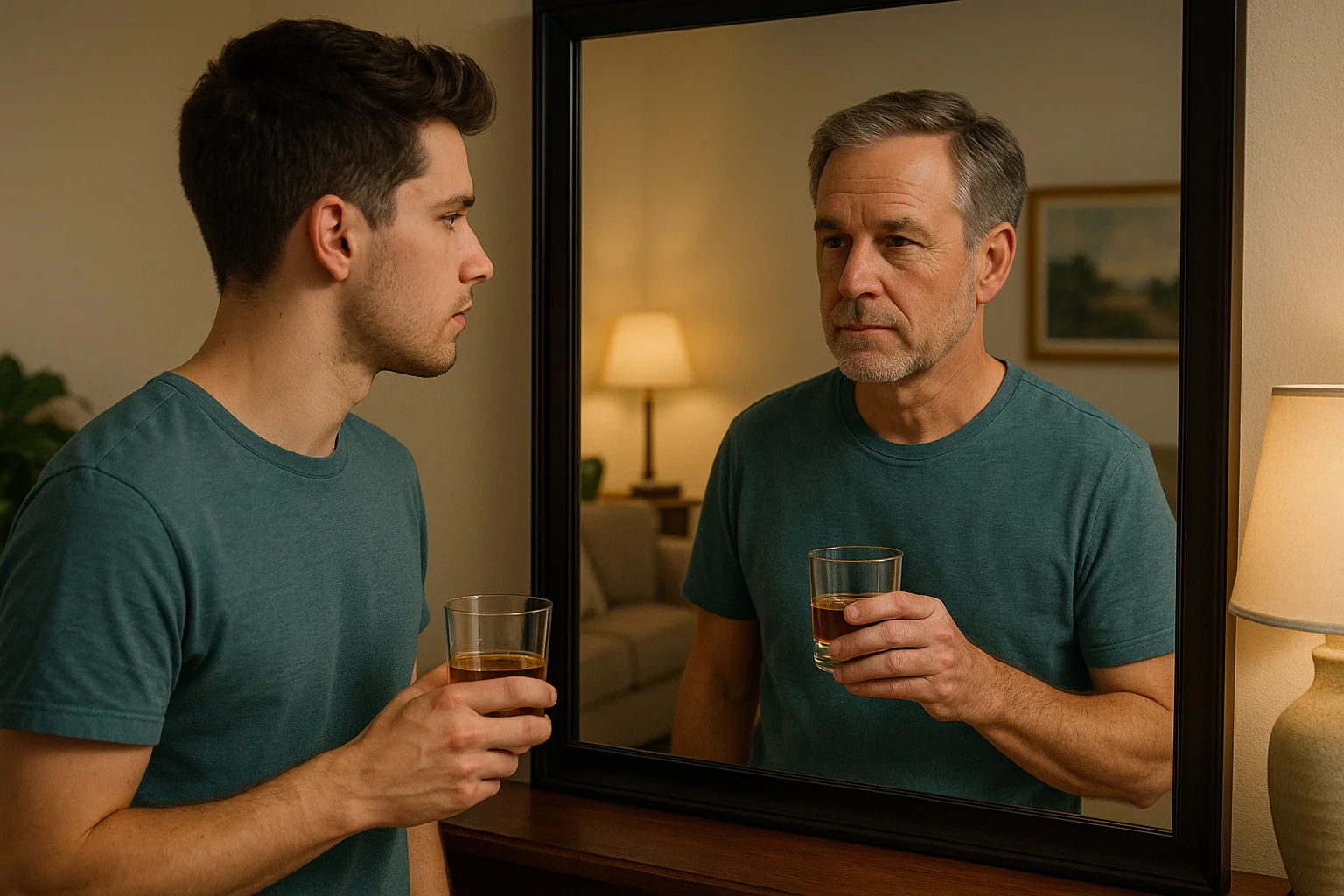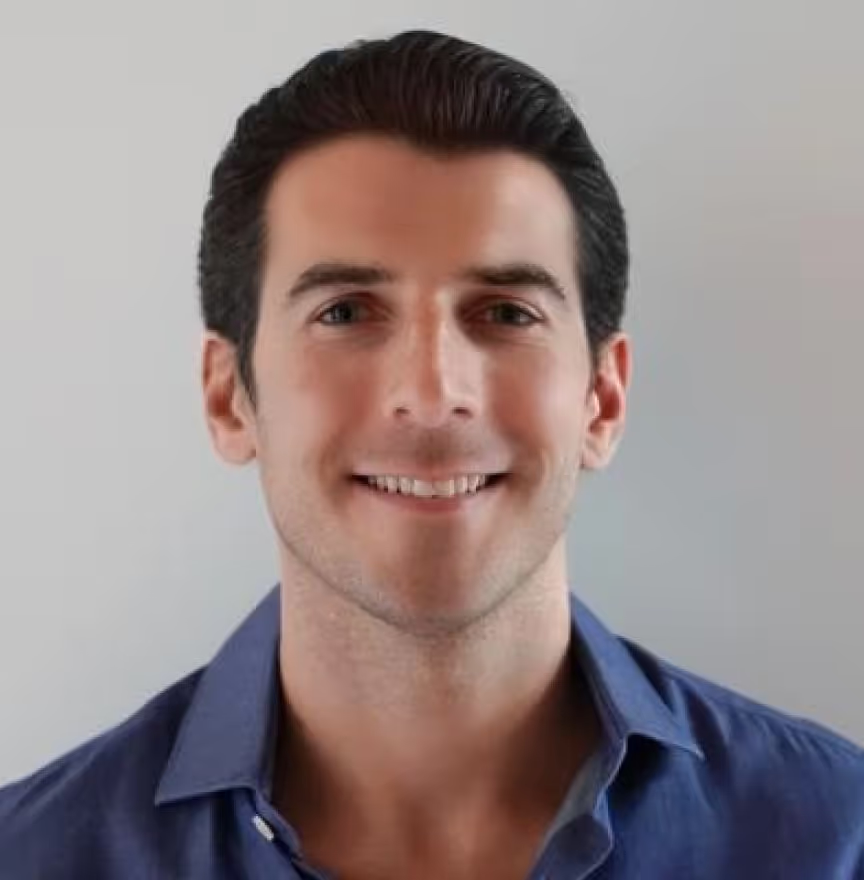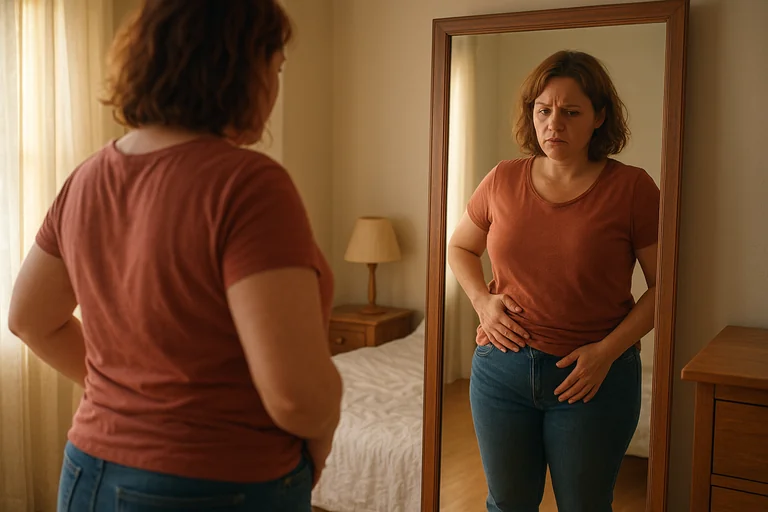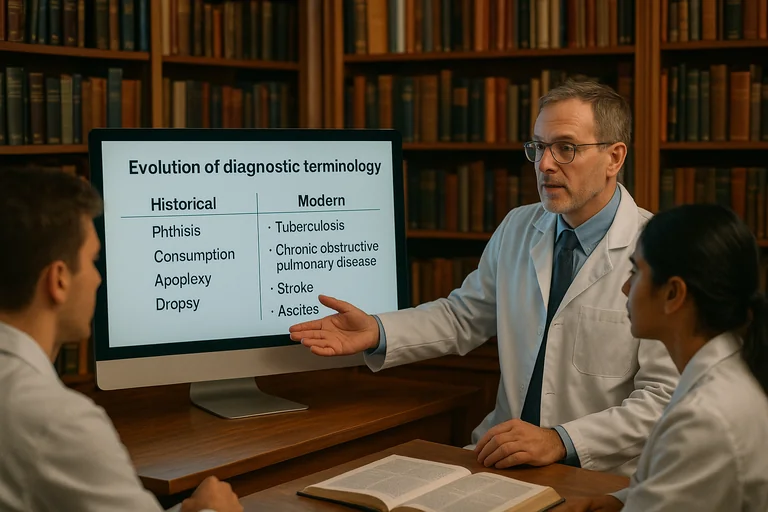A 2 minute assessment to get a personalized mental health or alcohol recovery plan.
Alcohol ages you from the outside (skin, hair, posture) and from the inside (brain, sleep, DNA, cancer risk) - but cutting back delivers fast wins in as little as two weeks.
What You'll Discover:
- How alcohol damages skin through dehydration, inflammation, and collagen breakdown
- Why alcohol disrupts sleep architecture and compromises your overnight repair system
- The link between alcohol and telomere shortening—a biomarker of biological aging
- How alcohol accelerates brain aging and cognitive decline
- Why alcohol causes at least seven types of cancer and increases risk even at low levels
- Fast changes you'll see in 14 days when you cut back
The first thing to know is this: yes, drinking alcohol can age you both outside and inside. The mechanisms go far beyond temporary dehydration. They include oxidative stress, glycation, hormone shifts, inflammation, mitochondrial dysfunction, and measurable changes in biomarkers of biological age.
With that in mind, cutting down delivers fast wins in sleep, skin appearance, and energy—often within two weeks—while reducing long-term disease risk.
The Biology of Looking Older: What Alcohol Does to Your Skin
Dehydration Is Just the Surface
Alcohol is a diuretic - it pushes fluid out of your body and strips the skin barrier of water short-term. But long-term "alcohol face" isn't simply dryness. It's a cumulative mix of inflammation and impaired repair.
Your body prioritizes detoxing acetaldehyde (a reactive byproduct of alcohol metabolism), shunting resources and increasing oxidative stress. That oxidative stress damages collagen and elastin - the scaffolding that keeps skin firm.
While intrinsic aging (time, genetics) naturally thins the dermis and reduces collagen synthesis, lifestyle accelerants like UV exposure, smoking, and alcohol push those same pathways harder.
Inflammation and Glycation
Repeated drinking spikes inflammatory cytokines and drives advanced glycation end products (AGEs) - sticky sugar-protein crosslinks that stiffen collagen. Stiffer collagen doesn't mean smoother skin.
Combine that with blood-vessel dilation (the flush you see in the mirror), and over time the face looks puffier yet less elastic.
Nutrient Diversion
Alcohol decreases absorption and increases excretion of several nutrients - B-complex vitamins and zinc - that your skin uses for cell turnover and barrier repair. Less raw material means duller tone and slower healing.
What you can do this month:
- Go alcohol-free or alcohol-light for 14 days
- Prioritize protein (collagen is protein) and vitamin C, the cofactor for collagen synthesis
- Focus on barrier repair (ceramide moisturizer; SPF daily)
For a step-by-step reset, see Two Weeks Without Alcohol: The Surprising Ways Your Body and Mind Begin to Heal.
Alcohol and Sleep: Your Overnight Anti-Aging System, Compromised
Sleep is when you rebuild: collagen cross-linking, growth hormone pulses, glymphatic (brain "wash-out") activity, and memory consolidation.
Alcohol shortens sleep onset but reduces REM sleep and can fragment slow-wave sleep later in the night - so you wake less restored even if you "slept" eight hours.
A recent controlled study found that even low doses reduce REM; higher doses amplify the disruption after the first sleep cycle. Less REM and broken deep sleep means worse skin repair, mood, focus, and metabolic control the next day.
Chronic disturbance of REM/slow-wave balance is linked to insulin resistance, weight gain, and cognitive aging phenotypes - aging you can feel. If your skin looks dull and your under-eyes are puffy after wine night, it's not imagination: your recovery architecture was altered.
Actionable swap: For every drinking event this month, schedule a non-alcohol night before important mornings (presentations, long runs, big meetings). Your sleep architecture will thank you.
If you do drink, leverage the hydration tactics and timing from Hydration and Alcohol: How to Stay Balanced While Drinking.
Alcohol, Telomeres, and Biological Age
Telomeres are protective DNA caps at the ends of chromosomes. Shorter telomeres are a widely used biomarker of biological aging.
In the largest observational analysis to date using UK Biobank data, researchers evaluated alcohol and leukocyte telomere length, then cross-checked findings with Mendelian randomization (a genetic technique that helps infer causality).
So, does alcohol shorten telomeres? The answer is yes - higher alcohol intake and alcohol use disorder were associated with shorter telomeres, supporting a direct link between alcohol exposure and biological aging.
Why this matters: Telomere attrition is associated with higher risk of age-related diseases (neurodegeneration, cardiovascular disease). While telomeres aren't destiny, behaviors that accelerate their shortening - like heavy or frequent drinking - likely "pull forward" risks you'd rather postpone.
Good news: Telomere maintenance is responsive to lifestyle. Sleep, exercise, micronutrients, stress management - and reducing alcohol - are all practical levers.
Brain Aging: Cognition, Mood, and the "I Feel Older Than I Am" Effect
The National Institute on Alcohol Abuse and Alcoholism (NIAAA) notes that alcohol misuse in older adults is associated with faster cognitive decline - problems with memory, thinking, and judgment - and can worsen or unmask mental health conditions.
Translation: the more you drink, the more likely you are to notice "senior moments" arriving ahead of schedule.
Mechanisms include:
- Neuroinflammation and oxidative stress
- Reduced neurogenesis in the hippocampus
- REM loss leading to memory consolidation impairment
- Vascular effects (blood pressure variability, atrial fibrillation), which affect brain perfusion
You may see headlines arguing over "moderate drinking and dementia risk." The evidence is mixed across populations and designs (observational vs genetic).
Rather than chasing the perfect dose of alcohol for brain health, the safer principle is this: less is better for long-term cognition, especially when you factor in sleep and cancer risk.
Public-health authorities now emphasize that no amount of alcohol is "risk-free," even if some studies show benign associations at low levels.
Cancer Risk: Aging's Most Sobering Accelerator
If there's one domain where the evidence is especially cohesive, it's cancer.
The National Cancer Institute's fact sheet underscores that alcohol causes at least seven cancers (breast in women, colorectal, liver, esophagus, mouth, throat, larynx), and risk rises with dose - but even light drinking can increase risk for some cancers (e.g., a daily drink and breast cancer).
In 2024, a U.S. federal advisory synthesized the scientific evidence and reiterated the causal link between alcohol and cancer, noting that risk may start to rise around one drink per day for certain sites.
That same advisory encourages consumers to consider cancer risk - not just calories - when deciding how much to drink.
Think of cancer risk as "aging compressed": heavy or frequent drinking doesn't merely add wrinkles; it pulls forward the probability of diseases typically associated with later life.
How Fast Can You Look and Feel Younger If You Cut Back?
Some changes are satisfying within days to two weeks:
Skin - Improved hydration and reduced puffiness; calmer redness as vasodilation and inflammatory signaling subside
Sleep/energy - Better REM proportion and fewer awakenings lead to clearer mornings and more stable mood
Metabolism - Steadier glucose and lower late-night snacking (alcohol impairs satiety signals), which helps with bloating and weight control
Cognition - More consistent focus; less "brain fog" from sleep disruption and inflammatory load
Training quality - Higher HRV, better muscle recovery (alcohol impairs muscle protein synthesis and rehydration)
A short reset is powerful because it interrupts habit loops and allows you to collect data on how alcohol was impacting you. Use the two-week plan here: Two Weeks Without Alcohol: The Surprising Ways Your Body and Mind Begin to Heal.
If You Still Want to Drink: Aging-Smart Rules That Actually Help
Set "where" and "when," not just "how much."
Alcohol's harm is nonlinear: late-night drinks are worse for sleep; "stacked" nights are worse for recovery. For appearance, performance, and cellular aging:
- Front-load the week with alcohol-free days - Your body repairs best with two consecutive sober nights
- Daylight or early-evening windows only - Finish drinking at least 3-4 hours before bed to limit REM suppression
- Hydration, then celebration - Begin the evening hydrated; alternate alcohol with water/electrolytes. See Hydration and Alcohol: How to Stay Balanced While Drinking
- Choose lower-congener options - Clear spirits, dry wine and avoid sugary mixers that spike AGEs
- Nutrition insurance - Prioritize protein and vitamin-C-rich produce earlier in the day
What Aging Looks Like Across Systems
Here's how alcohol ages different systems - and what changes when you cut back:
Skin - Alcohol causes oxidative stress, glycation, vasodilation leading to dullness, redness, fine lines. Reducing alcohol brings brighter tone, less puffiness, improved barrier and healing in 2-3 weeks
Sleep - Alcohol means less REM, fragmented deep sleep. Cutting back brings more stable REM/SWS, better morning energy and mood
Brain - Alcohol causes faster cognitive decline with misuse; worsened anxiety/depression. Reducing alcohol brings sharper attention, improved mood regulation; lower long-term risk per NIAAA guidance
DNA/telomeres - Alcohol shortens telomeres with higher intake/use disorder. Cutting back slows attrition; lifestyle supports telomere maintenance
Cancer risk - Alcohol has causal link to ≥7 cancers; risk may rise even at low levels. Risk falls as exposure falls (dose-response) per NCI and federal advisory
Frequently Asked Aging Questions
Is red wine different?
Not for aging-relevant risk. Antioxidants in wine don't negate alcohol's effects on sleep, telomeres, or cancer risk. The cancer relationship is about ethanol, not the drink's color.
What about "one drink a day"?
Population averages can hide individual vulnerability. Federal and NCI materials emphasize that some cancer risk increases even at low levels, and NIAAA flags cognitive risks with misuse. Your best aging bet is less, not more.
If I sleep fine after drinking, am I spared?
Subjective sleep can feel "OK," but REM suppression appears even at low doses and is measurable in lab settings. Your recovery and next-day performance may still be impaired.
Can supplements undo the aging effects?
No pill offsets alcohol's multi-system impacts. Hydration, protein, vitamin C, and sleep hygiene help, but dose reduction is the lever with the greatest effect size - especially for skin, sleep, and cancer risk.
If Cutting Down Has Been Hard
Craving is a learned brain response reinforced by dopamine and opioid pathways. That's why white-knuckling often fails and why medication-assisted approaches can help you change your relationship with alcohol in a way that sticks.
How Choose Your Horizon helps:
- Naltrexone (50 mg oral) to reduce the rewarding "pull" of alcohol
- 100% telehealth care with Mayo Clinic-trained clinicians, discreet at-home delivery, and coaching
- Flexible dosing strategies (daily coverage or the Sinclair Method approach before drinking occasions), depending on your goals and medical screening
Programs like ours are designed so you can lower alcohol exposure quickly, improving sleep and skin within weeks while lowering the long-term risks outlined above.
A Realistic 14-Day "Younger Next Month" Protocol
The goal: Rapidly reduce biological and visible aging drivers while building routines you can maintain.
Days 1-3
- Alcohol-free. Hydrate to baseline (approximately 30-35 ml/kg/day), eat protein at breakfast (around 25-30 g), add vitamin-C-rich produce
- Sleep anchor: fixed wake time; dim lights + screens off 60-90 minutes before bed
Days 4-5
- Decide on your pattern: full 14-day pause or a single planned early-evening drink window Day 6 (done by T-4 hours before bed)
- Strength training x2 (collagen stimulus) + light cardio
Day 6 (optional drink window)
- Eat before you drink; alternate each alcoholic beverage with water/electrolyte. Finish 3-4 hours before bed
Days 7-10
- Alcohol-free. Track sleep quality, skin tone, morning energy
- Add one outdoor session/day (circadian support)
Days 11-14
- Re-assess cravings; if you plan a drink, repeat Day-6 protocol
- Lock in a weekly template (2+ consecutive alcohol-free nights, early windows only)
Keep learning with Two Weeks Without Alcohol and Hydration and Alcohol.
Bottom Line
So, does drinking alcohol age you? The answer is yes - and it's not just about looking older. Alcohol ages your appearance, your sleep machinery, your brain, your DNA, and your long-term disease risk profile.
The most reliable way to look and live younger is to drink less, less often, and earlier, with good sleep and nutrition habits stacked around your choices.
If you want help that goes beyond willpower, a naltrexone-assisted plan can make change easier - while you start feeling and looking better in the mirror.
References
- National Institute on Alcohol Abuse and Alcoholism: Aging and Alcohol
- National Cancer Institute: Alcohol and Cancer Risk Fact Sheet
- U.S. Department of Health & Human Services: Alcohol and Cancer Risk (2024 Advisory)
- PMC: Alcohol consumption and telomere length (observational + MR)
- PubMed: Effect of alcohol on subsequent sleep (REM disruption even at low dose)
- National Institute on Aging: Skin Care and Aging




